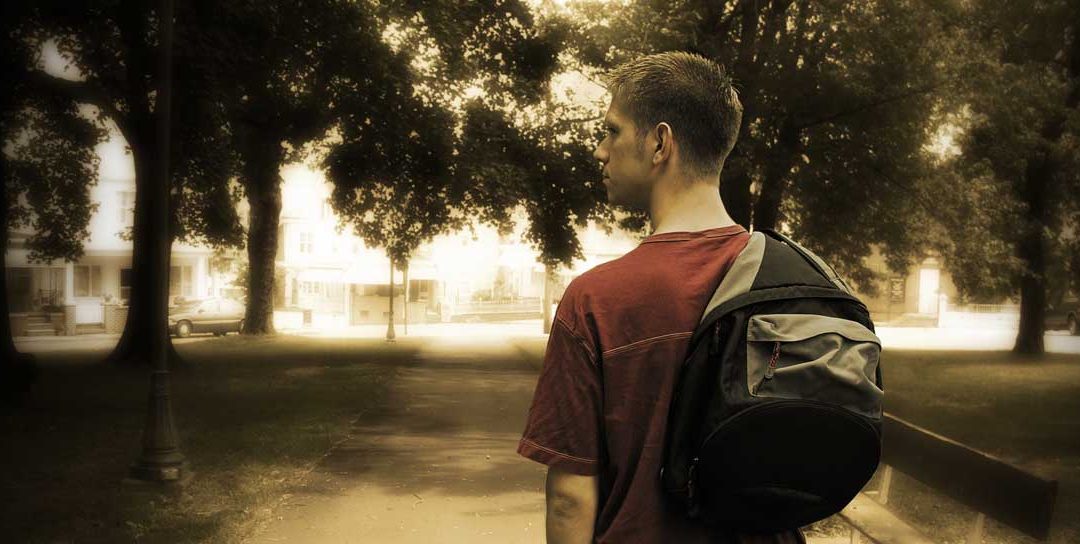Everybody loves the story of the prodigal son: a rebel sinner confessing his misery, the waiting father running and smothering him with kisses, filthy clothes exchanged for the father’s finery, a ring of sonship, and even sandals for his feet—for only slaves walk barefoot, not sons and daughters.
Recovering alcoholics are convinced that the boy had a serious drinking problem. They find that the boy’s story parallels their own. Jesus doesn’t include that detail because he wants each of us to find our own story in the parable.
What may be less obvious to us in the church is finding ourselves in the story of the elder brother. Except, that is our Lord’s intention.
The chapter begins with the note that those most like the younger son gathered in the inner circle close to Jesus, while the outwardly righteous stood in the outer circle.
Then Jesus tells two parables: one of a lost sheep and a lost boy who both wandered away; and another of a coin and a son who were both in the home but lost. The first story parallels those “tax collectors and sinners” in the inner circle, and the second, those on the outside.
Those of us in the church do not easily identify with the outside circle, the self-righteous Pharisees. We would be glad for any sinner who finally repents and comes to join our circle and be like us. But do we share the Father’s heart of mercy for those who are still far away? This father still loved that younger boy even though asking for his inheritance early meant, in that culture, that he wanted his father dead.
It is no wonder the elder brother was angry at the younger boy. Like the elder brother, it is difficult for us to see our values disregarded and even destroyed. We become angry at anti-Christian pressure around us. We can forget that our Heavenly Father wants all to come home to his heart of mercy.
Maybe there is more elder brother in each of us than we thought possible.
What happened to the older boy? How could he get so lost while still living in the father’s home? For one, our Lord notes, the boy forgot his own need for mercy. With angry tones he justified himself, “I never disobeyed your command.” It is not difficult to slip into this way of thinking, “I’m living the right kind of life.” I do this. I attempt to control my sin nature and forget my own need for mercy.
He had an even deeper issue. The older son failed to spend intimate time with the father. The second part of his angry reply accused his father of being unjust. “You never gave me a goat to have a party with my friends!” He did not want to have a party with his father.
Imagine how different his response would have been if he had spent time at the end of each day sitting on the back porch with his father watching him scan the horizon for some sign of the younger boy returning. Imagine the elder brother saying, “Father, it’s too dark to see anymore. Why don’t you come in and see if he comes home tomorrow?” Had he done that he would have come to know his father’s heart of mercy. Instead, he is outside and refusing to come into the celebration.
Notice how Jesus has constructed this story. Verses 2-4 of Luke 15 make it clear he is speaking to the Pharisees and the scribes. Jesus invites them to imagine one of their own number having a sheep wander away. Any one of them would go in search of that lost sheep. But when Jesus comes to the parallel story of the boy who got lost in the far country, the father does not go looking for the younger son. In this story the father goes looking for the elder son lost at home who would not come into the celebration of mercy.
His deep love for the older son becomes more evident in the story. When the father finds him, he calls him, “Son.” We should hear more than just an identifying title. This is much more like our Heavenly Father saying to us, “You, my very dear, precious child.” He is calling to each of us with a heart of love and mercy.
Then the father tells the older boy, “All I have is yours.” Did the older brother assume his father would divide the estate again? Then he would lose half of what remained. That would be so unfair. He was wrong. “All I have is yours.” We never have to worry. We will always receive all of God’s mercy. There is always more than enough for anyone who comes home.
As the story ends, we do not know if this lost boy went into the party. We are left with a question, “Did he come home to his father’s heart of mercy?” We are each left to answer the question in our own lives, “Will you come home to the celebration of your Heavenly Father’s mercy?”
There is great reason to celebrate!
Jesus Christ has died for the sins of the whole world, even for those who have rejected the ways of the Father and travelled far away from God. Jesus Christ is risen from the dead. He can bring back from the dead anyone who returns home. The Father has mercy for anyone who comes home to his heart. You are invited to come into the celebration of mercy.
Dr. David Veum is President of Lutheran Brethren Seminary.

